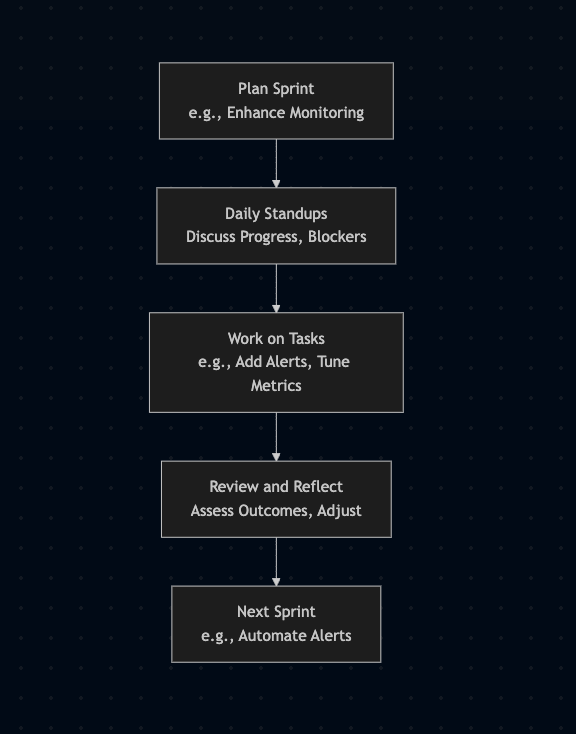Agile Methodologies in System Operations: Enhancing Collaboration and Efficiency
An exploration of how Agile principles can improve collaboration and efficiency in system operations and infrastructure management.
Modern systems thrive on speed and flexibility to meet ever-changing demands. Agile methodologies empower teams to deliver by prioritizing iterative progress, collaboration, and responsiveness. Through short cycles called sprints, teams managing infrastructure and system reliability can break work into manageable tasks, streamline workflows, and foster cross-functional communication. Unlike rigid linear methods, Agile encourages regular feedback, enabling rapid adaptation to new requirements while ensuring stability. This dynamic approach keeps system operations engaging and effective in a fast-paced world.
Applying Agile to System Operations
Agile practices can significantly improve how teams handle system operations. For example, sprints allow teams to tackle infrastructure enhancements—like improving monitoring or automating deployments—in focused bursts. Daily standups promote alignment, ensuring everyone understands priorities and challenges. Agile also supports a culture of continuous improvement, where teams regularly assess processes to identify areas for enhancement, directly contributing to system reliability.
Hypothetical Scenario: Consider a team working to reduce deployment times for a critical application. Using Agile, they break the project into sprints: first refining CI CD pipelines, then automating testing, and finally optimizing rollout strategies. Regular feedback loops help them adjust their approach, achieving faster deployments without risking stability.
Agile Workflow in Action
Here’s a simplified view of how Agile might structure a workflow for system operations:
 A flow chart for a simplified Agile workflow for a system operations team
A flow chart for a simplified Agile workflow for a system operations team
Benefits and Challenges
Agile brings clear benefits to system operations. It encourages collaboration, ensuring developers, operations, and reliability engineers work together toward shared goals. Iterative cycles allow for rapid adjustments, such as refining a monitoring system after a recent performance issue. However, challenges exist—balancing operational stability with iterative changes requires careful planning to avoid risks. Teams must also ensure Agile processes integrate smoothly into existing workflows, keeping reliability at the forefront.
Conclusion
Agile methodologies offer a powerful framework for teams managing system operations, enabling them to adapt quickly, collaborate effectively, and deliver continuous improvements. While challenges like maintaining stability must be addressed, Agile’s iterative nature supports the goals of operational excellence. As systems grow more complex, these principles can help teams stay responsive, ensuring both reliability and innovation in contexts like SRE and DevOps.